Julie Turner - Organic Gardening Beginners Manual: The ultimate Take-You-By-The-Hand beginners gardening manual for creating and managing your own organic garden.
Here you can read online Julie Turner - Organic Gardening Beginners Manual: The ultimate Take-You-By-The-Hand beginners gardening manual for creating and managing your own organic garden. full text of the book (entire story) in english for free. Download pdf and epub, get meaning, cover and reviews about this ebook. year: 2012, publisher: CreateSpace Independent Publishing Platform, genre: Home and family. Description of the work, (preface) as well as reviews are available. Best literature library LitArk.com created for fans of good reading and offers a wide selection of genres:
Romance novel
Science fiction
Adventure
Detective
Science
History
Home and family
Prose
Art
Politics
Computer
Non-fiction
Religion
Business
Children
Humor
Choose a favorite category and find really read worthwhile books. Enjoy immersion in the world of imagination, feel the emotions of the characters or learn something new for yourself, make an fascinating discovery.
- Book:Organic Gardening Beginners Manual: The ultimate Take-You-By-The-Hand beginners gardening manual for creating and managing your own organic garden.
- Author:
- Publisher:CreateSpace Independent Publishing Platform
- Genre:
- Year:2012
- Rating:5 / 5
- Favourites:Add to favourites
- Your mark:
Organic Gardening Beginners Manual: The ultimate Take-You-By-The-Hand beginners gardening manual for creating and managing your own organic garden.: summary, description and annotation
We offer to read an annotation, description, summary or preface (depends on what the author of the book "Organic Gardening Beginners Manual: The ultimate Take-You-By-The-Hand beginners gardening manual for creating and managing your own organic garden." wrote himself). If you haven't found the necessary information about the book — write in the comments, we will try to find it.
Heres the ultimate Take-You-By-The-Hand beginners gardening manual for creating and managing your own organic garden. Even if you know nothing about organic gardening.... so you can get back your health and energy and save a stack of money.
Youre going to learn that organic gardening can greatly improve your health and energy levels while really lowering your weekly food bills, and it only takes about half an hour per week.
If youre like me you probably hate the idea of eating foods (and providing them for your family) that may have been grown with chemicals.
I want to share with you not only the joy of producing fresh, delicious food for your family, but also the health advantages of spending time in the fresh air and sunshine, stress relief, and chemical free, vitamin filled, fresh, natural foods - what our bodies really crave for and need.
Now you can access the information you want quickly and easily, to make planning and growing your vegetable garden a breeze! Growing our own food makes us less reliant on commercially grown foods. Who knows how long produce might have been sitting around on a shelf, or in a cooler room?
Do you wonder just what chemicals have been sprayed on that perfect-looking tomato, that really is quite tasteless? Being able to walk out to your organic vegetable garden and pick your own food - now lets see... how many food miles is that? - Oh, its none!
Youll instantly discover...
- Your very best area to grow your vegetables
- How to build up healthy, fertile soil without costing a fortune
- How to feed your soil - the organic ways
- How to create an easy, no-dig veggie plot
- Massive savings by learning how to grow from seeds
- 9 Essential tips to successfully transplanting your seedlings
- Tips for the most effective watering
- Why mulching is a must in every organic garden
- 5 easy ways to keep your garden weed free
- How to slash your food bill in half
- The 7 crucial ingredients to making great compost
- What never to put into your compost
- How to make your own organic liquid fertilizers, saving $$s
- Natural ways to protect your plants from pests and disease
- Top 10 easiest veggies to grow
- Secrets to growing lush, healthy herbs
- Why to include perennial vegetables
- What you must do to grow your food if space is limited
- How much to plant for your familys needs
Happy Organic Gardening, Healthy Living....
~Julie
Julie Turner: author's other books
Who wrote Organic Gardening Beginners Manual: The ultimate Take-You-By-The-Hand beginners gardening manual for creating and managing your own organic garden.? Find out the surname, the name of the author of the book and a list of all author's works by series.

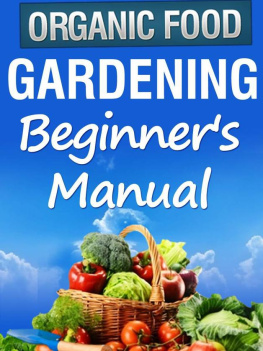

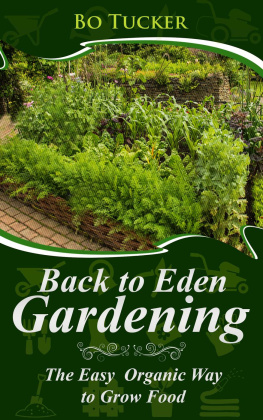
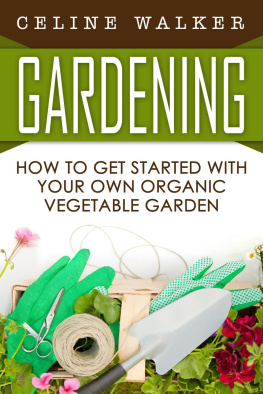
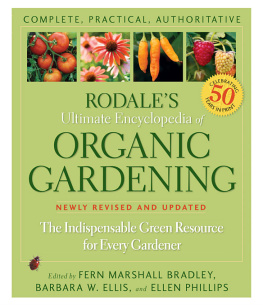
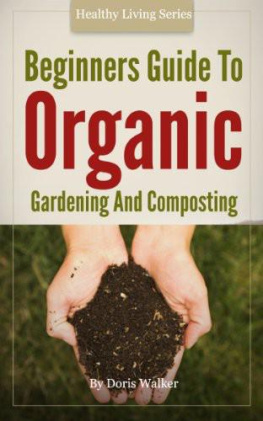
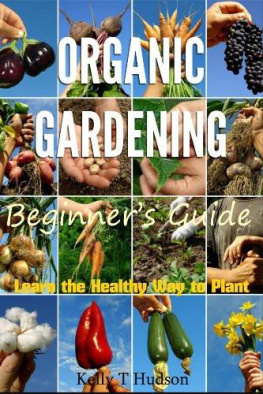
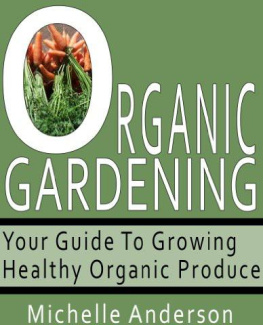
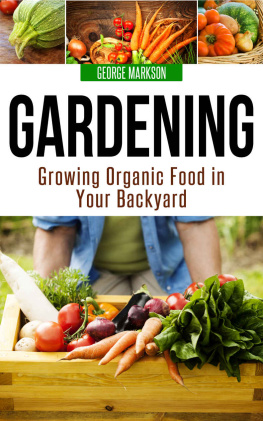

 Introduction
Introduction No-Dig plots (encourages earthworms and micro-flora)
No-Dig plots (encourages earthworms and micro-flora)